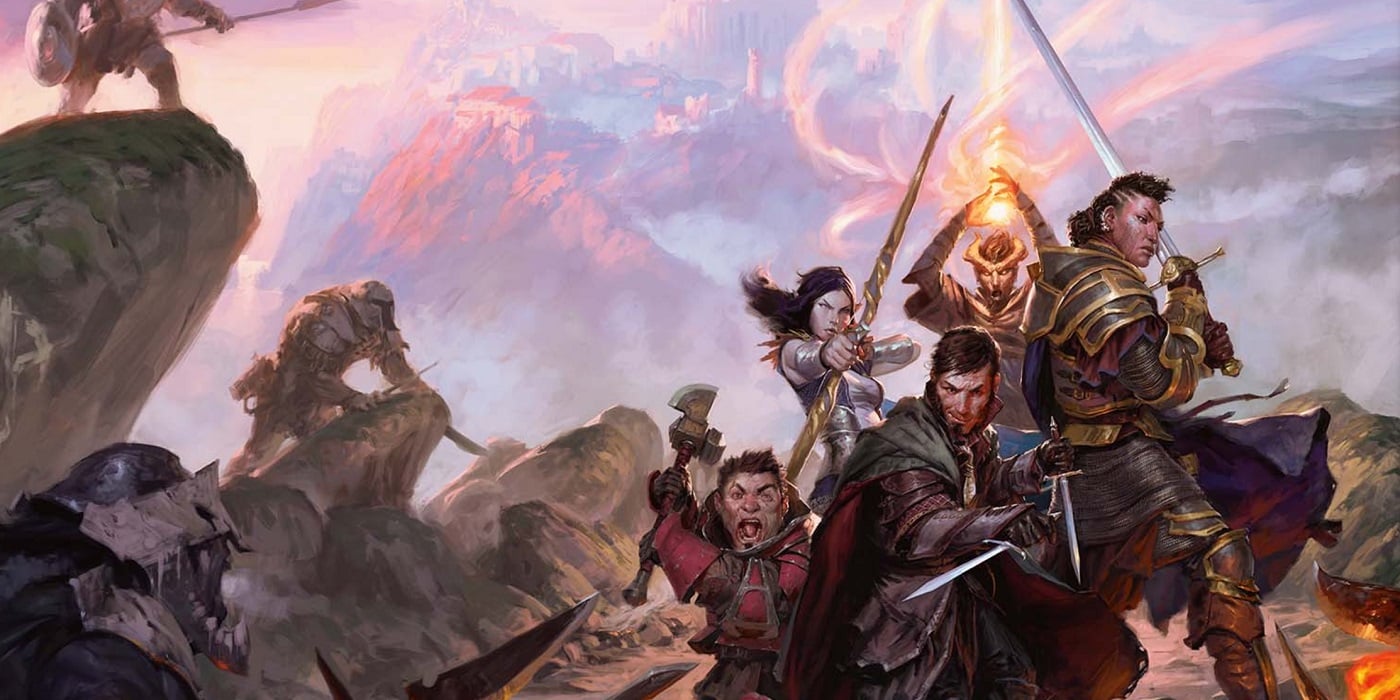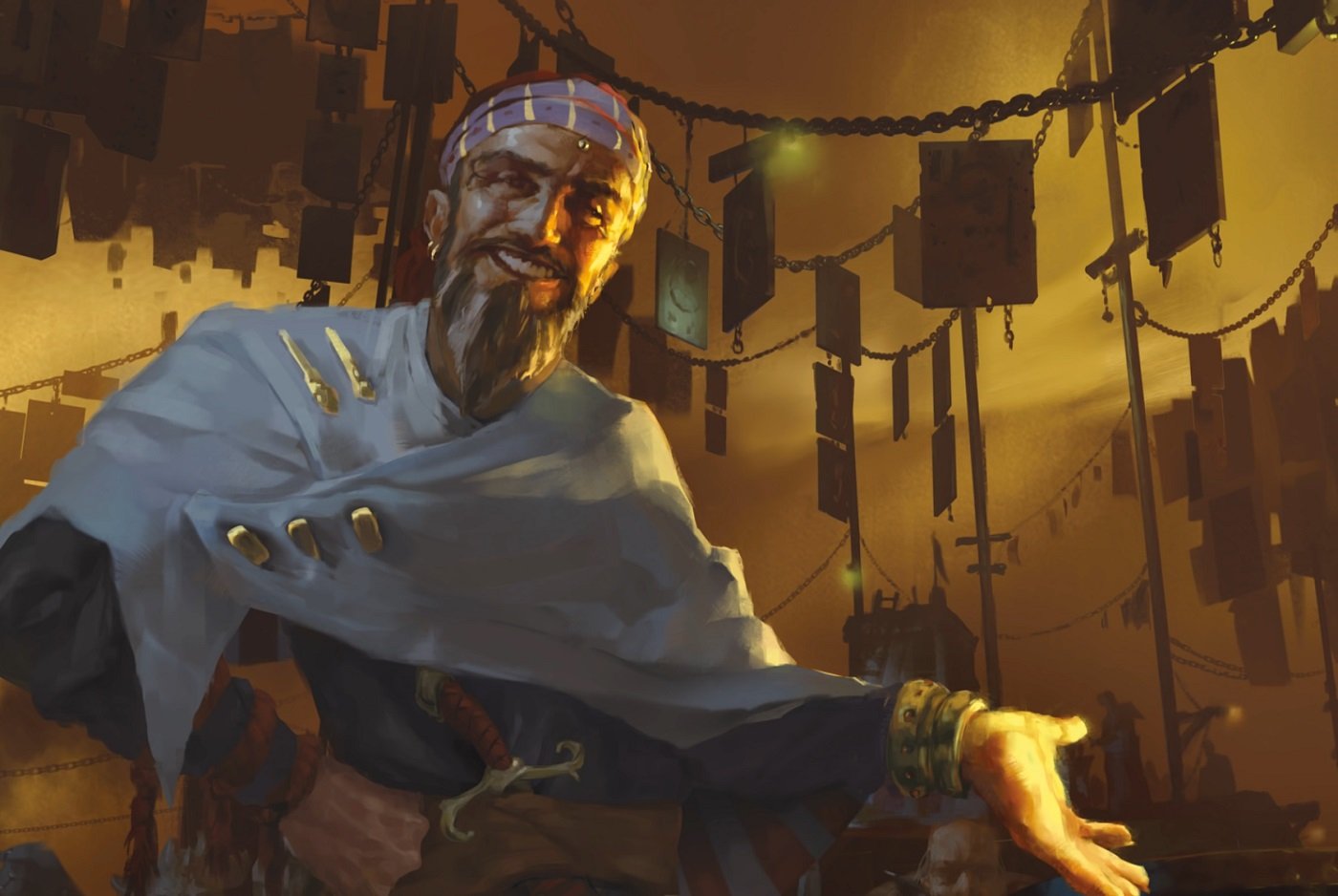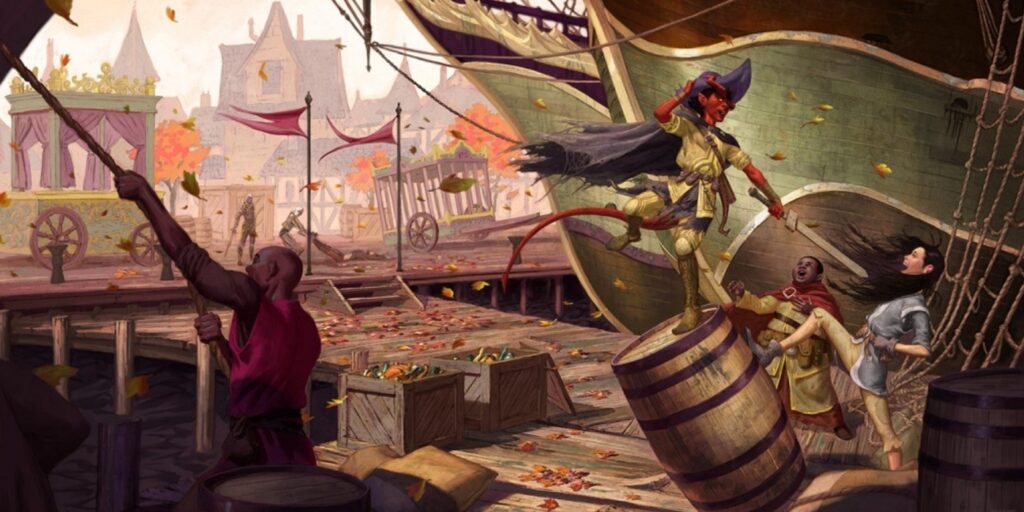D&D Beginner’s Guide: Roleplaying at the Table

Roleplaying is a core aspect of D&D, but getting into it can be tricky. But you can make your character worthy of a stage performance.
Roleplaying is a quintessential aspect of what makes playing a D&D character fun. Rolling dice and engaging in combat can only take a player so far.
Indeed, one of the greatest joys of playing a D&D character is the escapism it grants the player. It gives them the chance to pretend and be someone they’re not. To live a second life in a fantasy world filled with adventure, mysticism, and stakes.
A life where players don’t have to worry about real-world politics or what their boss thinks of them at their job.
Anyone can live a life like this, but everyone interacts with it differently. Many players find role-playing incredibly easy, while others may struggle to situate themselves in their characters’ mindsets.
And for those who are new to D&D, roleplaying can often feel like a daunting task. After all, balancing it on top of everything else a noobie has to remember? It’s a lot! They go through so much… like remembering how things like Armor Scores work while also committing to memory the bartender’s name from that tavern they visited five sessions ago.
Roleplaying may seem as complex as opening the lid to a jar of pickles. But, honestly, getting into roleplay at the table can be as easy as opening a peanut butter jar!
D&D Roleplaying 101: Baking the Character Cake
A common misconception many new players have is that characters are built upon during the session. However, the art of roleplay actually begins during character creation.
When making a character, every piece of information they are given will often feed into their roleplay. They could have physical things like the Wizard‘s cat familiar, Flumpy, or the Barbarian‘s bloody war axe that they carry around with them. Or, more personal, backstory-driven subjects like the Rogue previously being a member of a thieves’ guild or the Sorcerer‘s massive daddy issues.
New players often feel like they must make deep, complicated characters that make them a subject of interest for both the DM and the other players. I am here to say that is wrong.
Learning how to roleplay is similar to learning how to solve math equations. New “mathematicians” (players) should start with learning how to first solve 2+2 before attempting to comprehend the quadratic equation.
What I mean by this is that players should start by role-playing characters who follow simple concepts. Making basic characters with basic personalities and basic motivations is the key to subjective character creation. Basic characters are easy to roleplay because the player doesn’t have to worry about contradicting the character’s backstory or personality.
For example, Paladins who aim to uphold the law and protect all that is good, Barbarians who love to fight and drink, and Rogues who enjoy stealing from people and striking from the shadows. The more stereotypical, the better.
This allows new roleplayers to learn the basics of D&D roleplaying with others at a table. Like letting others talk first, following a person’s motivations/beliefs/morals that aren’t their own, and even the basics of roleplay etiquette.
Charisma Can Be Used for More than Spellcasting
Another common struggle for a lot of new players is trying to get over the mental hurdle of acting like someone completely separate from themself. Which is very understandable!
Acting is a talent that is incredibly hard to learn. Roleplaying is possibly even harder to learn by comparison as it requires players to be good at improvisation. Specifically, in theatre kid language, it means they have to be good at improv.
New players might struggle quickly thinking about what to say in response to an NPC’s statement. Or what they should do when their character is faced with a difficult situation.
My advice is that if the roleplayer doesn’t like following a prewritten personality, they could just follow their stats.
What I mean by this is that D&D stats can be used for more than just weapon attacks, spells and ability checks. They can be used to help base what a character is good at and what they’re not good at.
A character with a low intelligence score might not know a lot about the world in which they exist. This means that a character could easily feign ignorance to world-build aspects that they can’t remember off the top of their head.
A character with a low constitution but high charisma might try and get into a drink off with a local drunkard. Only to then pass out three drinks because they completely overestimated their tolerance.
Stats can be used for many applications outside basic skill checks and attack rolls. They can be used actually to shape what a character is good at. It could determine whether they like studying or find joy in lying to others (especially if their proficiencies align with their interests).
Staying Engaged Like a Newlywed Couple
One of the biggest mistakes many new players make is distancing themselves from the campaign’s narrative. Players can accomplish this in various ways. The one I see the most is when players scroll on their phones while the other players role-play with NPCs.
Players who stay engaged with the narrative have a far easier time roleplaying than players who don’t!
After all, if two students are taking a test, which student will probably do better? The student who paid attention to the teacher during the seminars or the student who chose to sit in the back of class playing Bag Piggies on their phone?
Yeah. The one who played Bad Piggies. Because Bad Piggies freakin’ rules.
Seriously though. An MTG player wouldn’t play a round of commander without a full deck. So, a player shouldn’t roleplay without knowing the full extent of the conversation they’re engaging in.
This also applies partially to character creation. Making an extensive, deep character with tons of lore might be hard to work into a prewritten module. Especially if their motivations revolve around something outside the module’s story.
Modules are a great place to learn how to roleplay, in fact! They encourage players to create simple characters that seamlessly fit into any storyline. Not to mention that most modules work better the less the players know about it’s world-building. Just look at Curse of Strahd! Barovia is fantastic, yet most new players don’t know anything about it besides the setup going into character creation.
However, the bottom line is that the only way to get better at roleplay is to try it. Any newcomer shouldn’t be expected to deliver Critical Role or theater-level acting, and the top priority should be having fun. Players best engage in roleplay when they are naturally introduced to it. When players are forced out of their comfort zone, their performance is guaranteed to worsen.
So, don’t be assholes! And have a good time playing goofy characters together!






